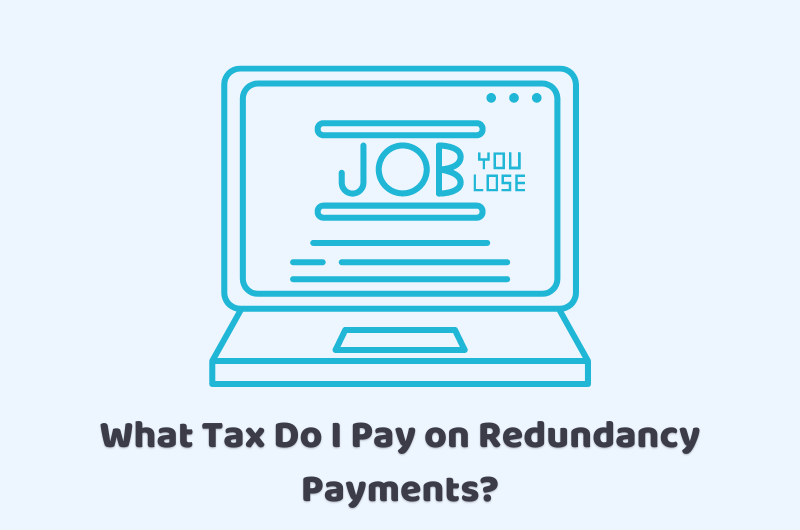
16/12/2022tax , Tax Saving Tips , Taxation
Are you the individual who was once an employee of a company in the UK and then has been made redundant? You must be getting redundancy pay now. However, as a beginner, most people do not have a clue as to how the tax on redundancy payments is handled. This can result in putting you in unfavorable circumstances where you are not prepared for paying the amount tax and you even miss out on the deadline. Wondering about the tax amount that you will have to pay on redundancy pay? We have got you covered here.
This comprehensive blog is designed to help you understand how you will pay tax on redundancy payments. This experience will always be different from the regular salary amount because the redundancy pay is treated differently as well. This is imperative to know here what is the limit of the tax-free amount. Well, £30,000 is the maximum limit and after you cross this certain limit you will have to deal with the tax liabilities. Further in the discussion of this guide, you will gather information about what is redundancy pay, what is the tax-free limit of a redundancy package, what is the tax liability after crossing a certain limit, and what is the way to get the most from your redundancy package.
Reach out to one of our professionals to get to know about the tax on redundancy payments for your earnings in the UK. Get in touch and you will be provided instant professional help!
What are the Redundancy Payments in the UK?
This might sound new to you but being redundant means that your employer needs fewer workers at the company and he has to make you lose your job. Sometimes the major reason behind making the employees redundant is that your work position is no longer required because of technology advancements or the work volume has reduced in the company. In the process of selecting employees for redundancy, the employer has a set of rules to follow.
Moreover, when being redundant you must also be aware of your rights. The GOV.UK has provided a set of rules for the employer as well as the employee’s rights in this regard. You will get a certain amount that your employer will pay after they make you redundant. This payment is referred to as a redundancy payment. The purpose of this payment is to make compensation for your loss.
What is the Tax-Free Limit of Redundancy Payments?
Wondering about the tax implication of this kind of payment. Because the redundancy payment is treated differently from regular income, there is an extent to the tax-free limit of this payment. You can get an amount of £30,000 as a redundancy payment without having to worry about tax. Moreover, the non-cash benefits will be covered as part of the package. This might include the expenses like computers or the company car.
If you are being given the cash value of these benefits, this will also be added to the amount of your redundancy pay and considered taxed for this purpose. Furthermore, sometimes the set limit of the tax-free amount goes up in case of other non-cash values that are offered in the package. This totally depends on your circumstances and can vary from one case to another.
What is the Tax on Redundancy Payments?
The amount over the limit of tax-free redundancy payment is usually taxed already. Just like in the case of regular income, the employer usually deducts the tax from the amount before it reaches your account. Sometimes the amount that the employer has taken off is not accurate or according to the rules. This might put you in a position of making extra tax payments or underpayment. You will have to go through the process of claiming the tax back in some cases. This means that you will have to be very careful about your tax underpayments and overpayments.
How can You Make the Most from Your Redundancy Pay?
Sometimes people are in a good position financially even after they are redundant. This is mostly because of the reason that people have multiple income sources to make a living in the UK. If you are the one who does not need this kind of money to make a better living, you can always opt for saving plans or to pay your debts off from this. You can use it as a contribution to your pension amount as well.
The Bottom Line
Now that you have gathered a fair amount of information about tax on redundancy payments, we can bring the discussion towards wrapping up. There is no denying that redundancy payments are beneficial after losing a job and help you to make a better living. However, people have multiple income sources these days and do not rely only on these kinds of payments always. In such a case this amount can be used to pay your debts, make savings, or contribute the amount of your pension. These are some of the best options to follow and are suggested by professionals as well. We hope these few minutes of reading have helped to develop a better understanding of tax on redundancy payments and tax rates. This can further help you to handle your redundancy payments more efficiently in the future.
Get in touch with our young, clever and tech-driven professionals if you want to choose the best guide for tax on redundancy payments in the UK for your income.
Disclaimer: The information about the tax on redundancy payments provided in this blog includes text and graphics of general nature. It does not intend to disregard any of the professional advice.

